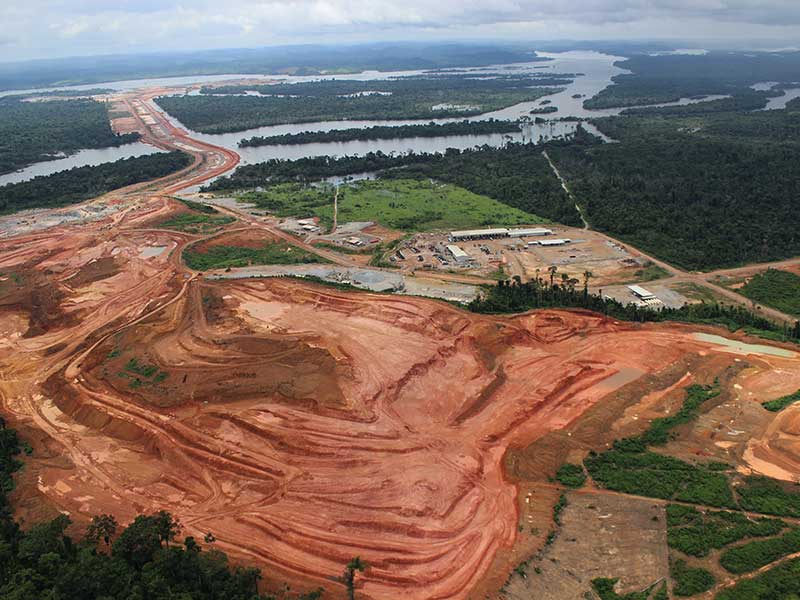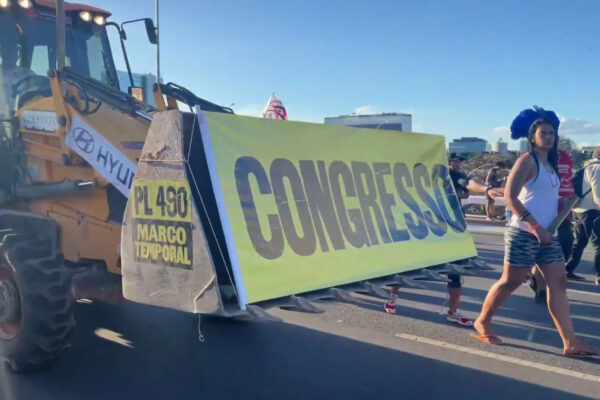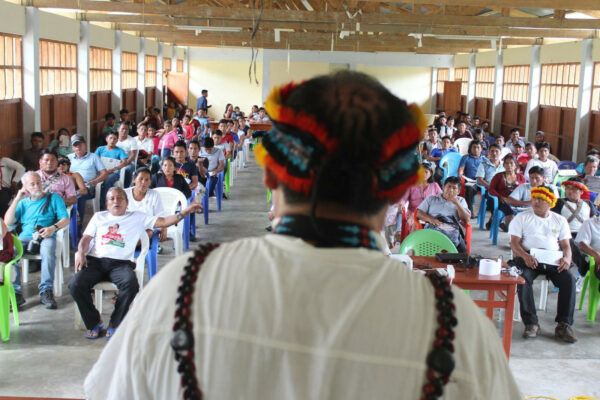
For over a year Brazil has been immersed in an unprecedented corruption scandal centered on state-owned oil company Petrobras. While corruption schemes are believed to have existed in the nation since the 90s, this scandal only broke in March 2014 when Petrobras directors, corporate executives and political party operatives were jailed in connection with operation Lava Jato – a federal police investigation carried out with support from the federal public prosecutors office (MPF), a government watchdog.
Initial investigations revealed an intricate scheme of bid rigging, bribery and kickbacks at Petrobras involving party bosses, high-level government bureaucrats, money launderers and the heads of Brazil’s biggest construction companies, including Camargo Correio, Andrade Gutierrez, Queiroz Galvão and the OAS. Recent estimates indicate that financial resources diverted through corruption schemes at Petrobras exceeded US$2 billion, while devaluation of assets and other factors caused the company to lose US$14.8 billion in 2014.
Last December Paulo Roberto Costa, ex-director of Petrobras and one of the first high-level officials to be implicated in the Lava Jato operation, testified in Brazilian Congress that similar corruption schemes existed in other sectors. “With highways, trains, ports, airports and hydroelectric dams, this happens all over Brazil. All you have to do is investigate, because it happens,” said Costa. As the investigations of Lava Jato have proceeded, Costa’s testimony has proven true in the case of Brazil’s powerful dam industry, linked to the Ministry of Mines and Energy and the state-owned electrical energy company Eletrobras.
In a plea deal, top executives of Camargo Corrêa initially vowed to provide details of systematic corruption in connection with the Belo Monte and Jirau mega-dam projects. Last week, it was publically disclosed that Dalton Avancini, ex-president of Camargo Correa, testified to public prosecutors that his company paid R$30 million (US$9.6 million) to President Dilma Rousseff’s Workers Party (PT) and to Brazil’s largest political party, the PMDB, part of the government’s ruling coalition, in exchange for its 15% share of the construction contract for Belo Monte.
Other members of the Belo Monte construction consortium (CCBM) – including Odebrecht, Andrade Gutierrez, OAS, Queiroz Galvão and Galvão Engenharia – apparently followed suit. Last week, a similar confession was made by Gerson Almada, a partner in Engevix Engenharia, who paid R$2.2 million to Milton Pascowitch, an operative of the Workers’ Party jailed since May as a result of Operation Lava Jato, in exchange for contracts in the construction of Belo Monte.
Given mounting evidence of corruption and upon request from Federal Public Prosecutors, Brazil’s Central Accounting Office (Tribunal de Contas da União) recently initiated an audit of Belo Monte. The financial audit is expected to include R$22.5 billion (US$7.5 billion) in subsidized loans from Brazil’s National Development Bank (BNDES) covering 80% of project costs to dam concessionaire Norte Energia – which is controlled by the Eletrobras group – and the pension funds of Petrobras and two government-controlled banks, Banco do Brasil and Caixa Econômica Federal.
Last Friday, Federal Police executed 12 arrest warrants signed by Judge Sérgio Moro as part of the 14th phase of Operation Lava Jato. Employing the Latin codename Erga Omnes (implying the law is for everyone) the latest phase of investigation is particularly noteworthy in that it involved the jailing of Marcelo Odebrecht, president of Brazil’s most powerful construction company (Norberto Oderbrecht, S.A.) and a personal friend of ex-President Luis Inácio Lula da Silva. That same day, Otávio Marques de Azevedo, President of Andrade Gutierrez, was also imprisoned. An initial phase of investigations revealed that Odebrecht and Andrade Gutierrez paid bribes exceeding R$710 million (US$226 million) to Petrobras directors and operatives of political parties. Soon after the arrest of Marcelo Odebrecht, Federal Police intercepted a handwritten note by the executive to his lawyers ordering them to destroy e-mails related to a suspect Petrobras bidding process.
As Lava Jato investigations intensified, family patriarch Emilio Odebrecht angrily declared that if son Marcelo were jailed, “the government will need to arrange for three prison cells, one for me, one for Lula and another for Dilma.”
Meanwhile, ex-President Lula and other high-ranking members of the Workers’ Party (PT) have pressured Minister of Justice José Eduardo Cardozo to reign in the Federal Police, putting the brakes on operation Lava Jato. Some party bosses threatened to demand that the minister be fired. Cardozo has attempted to explain to Lula and his cohorts that the Federal Police is an autonomous institution, and that he doesn’t have the authority to interrupt investigations.
Last week, arguably the most bombastic testimony in Lava Jato to date came from Ricardo Pessoa – the jailed president of construction company UTC who is accused of acting as “club president” for corporate executives engaged in bribery, fraudulent bidding, and grafting on public contracts. In a plea bargain approved by the Supreme Court, Pessoa presented an extensive list of illegal campaign contributions to high-level political figures, including President Rousseff’s chief-of-staff Aloisio Mercadante and former campaign treasurer Edinho Silva, current Minister of Social Communication. Rousseff discredited the allegations, affirming that plea bargainers don’t deserve her respect, since their situation is analogous to that of when she was a political activist imprisoned by the military dictatorship and was pressured to testify against allies.
In his testimony, Pessoa admitted that major criterion in allocating campaign contributions has been support from politicians in stymieing strikes among workers in projects where UTC is engaged. He cited as an example a R$200,000 contribution to the electoral campaign of Federal Deputy Luiz Sérgio (PT-Rio de Janeiro), president of a special congressional committee responsible for investigating corruption in Petrobras, in exchange for avoiding strikes among workers at the Angra 3 nuclear power plant. A second example was a R$500,000 donation in 2012 to Paulo Pereira da Silva (Paulinho da Força), a national trade union leader, in exchange for support in halting strikes among workers at the construction site of the controversial São Manoel dam on the Teles Pires River.
As the investigations of operation Lava Jato have unfolded revealing massive corruption within the Brazilian dam industry, the fundamental reasons for the federal government’s obsession with destructive dam projects such as Belo Monte and São Manoel, particularly during the administrations of Luis Inácio Lula da Silva and Dilma Rousseff, are becoming increasingly clear. If investigations and criminal indictments contribute to effectively strengthening democratic institutions and the rule of law in Brazil, especially with regard to human rights and environmental legislation, a major victory will have been achieved for the threatened rivers and populations of the Amazon.
This article was co-written by Brent Millikan, Amazon Program Director at International Rivers and Maira Irigaray, Brazil Program Coordinator at Amazon Watch.













